Craft Cocktail is pushing the limits of mixology with drinks that appeal to all senses and smashed their crowdfunding goal as a result.
drinking (Page 3)
Recent study suggests that Japanese males are significantly less interested in getting wasted as they used to be.
Turns out there’s a simple way you assess whether you’re a happy drunk or a dangerous one, at least according to one Japanese Twitter user.
Moon watching parties and festivals abound the world over—and with good reason! There’s nothing quite like drinking in the light of a full moon, is there? It’s magical and fun in just the right proportions. And now, thanks to the Korean design company Tale, you can buy the perfect glasses for your next moon viewing party!
These beautiful Moon Glasses mimic the phases of the moon as they’re filled, going from a new moon to a full moon as your pour in your liquid of choice.
As a child I distinctly remember anti-drug campaigns telling me to “Just say no!” and how narcotics would turn my brain into a fried egg rather than a raw one, which I guess meant that cold, transparent and runny is the optimum condition for one’s gray matter.
And after I was released from rehab for the third time, I realized that those messages were largely ineffective. This was because rather than educate about the way drugs work both chemically and socially, they simply resorted to speaking down to the viewer and giving us simple commands that we were expected to blindly obey for some reason.
Looking at the above image to an alcohol abuse PSA from Thailand, you might expect more of the same dogmatic obscurity of days past. However, this ad—as bizarre as it is—is a very persuasive and inspiring message regarding knocking off the booze and getting your life together.
One of the things you may notice when you come to Japan is how much drinking seems to be going on. Certain Japanese societal circles (the workplace, university clubs, etc) run more smoothly with the help of alcoholic lubrication in the form of after-hours “drinking parties” to facilitate team-building and bonding—it’s called nomication (or nominication), a portmanteau of “nomu” (to drink) and “communication”.
So we were quite surprised to discover recently that Japan’s level of alcoholic beverage consumption is actually way, way down. But why?
Japan has a lot of unique customs, and not all of them make sense to newcomers. Eating fried chicken on Christmas Eve, anyone? How about the weird ritual of girls giving chocolate to guys on Valentine’s Day (do guys really like chocolate more than we girls do?).
But it turns out that there are plenty of customs that even Japanese people think are a waste of time. Here’s the top seven worst offenders, and why they are so annoying…
Kirin Beer, the Kirin Beverage Company subsidiary unsurprisingly in charge of manufacturing and selling the company’s signature lines of beer, announced yesterday that it will begin offering a service starting from August that will see a beer server and kegs delivered to individual households in the Tokyo area on demand.
There are two types of people that, no matter how much they love the culture, are ultimately going to have a bad time in Japan: Vegetarians, and teetotalers.
Basically every meal in Japan has some type of meat in it, and the more strict you are with your vegetarian/vegen diet, the more difficult it’s going to be to find something to eat. Even supposedly vegetarian options sometimes contain pork or chicken broth or other sneaky animal product additions. And when it comes to those who choose not to drink, or can’t because of medical conditions, it’s almost as hard to get by, if not harder.
Thankfully, Suntory is here to help. Sort of.
After conducting a survey of people’s drinking habits, beverage-maker Kirin discovered that Japanese people in their 20s just weren’t drinking as much as their elders. While for many this would be an optimistic sign that the younger generation is becoming a group of sober and hardworking members of society, for those in the alcohol business it’s a sucker punch to the bottom line.
So, in an effort to keep younger drinkers off the wagon, Kirin is meeting them 99 percent of the way by offering a line of drinks aptly named “Butterfly” which contain only one percent of alcohol by volume.
Japanese goukon (organized group dates) are a mixed bag – sometimes they’re a whole lot of fun, and other times they’re a downright uncomfortable experience. For Japanese women wanting to reduce their risk of having a terrible time, one magazine has put together a list of the top companies to avoid when it comes to lecherous guys at their drinking parties.
Japan is in a league of its own when it comes to drinking. Sure, the pubs of England may be filled with raucous drunken shenanigans and those in Argentina have surely experienced their fair share of malbec-filled late nights, but nowhere else is publicly knocking back a cold one (or two or five) as socially sanctioned as it is in Japan. What some might consider chronic alcoholism in the United States is perfectly okay, and in many cases considered good for your career, in this land of sake and sochu. So it came as no surprise to us to learn that Japan landed on the very top of the list of the countries that think drinking alcohol is morally acceptable.
After living here for the best part of eight years (five in the country, the rest in the capital) I’ve come to realise that for all the talk of Japan being kind of an oddball nation, it’s no weirder than anywhere else, and perhaps the only reason people here sometimes come across as so quirky is because the rest of the time they mind their own business and just get on with things quietly.
One thing that never fails to astound me when I go out at night in Tokyo, though, is the almost superhuman way in which some businessmen – despite looking like they’ve consumed more alcohol than I ever could without ending up in hospital or featured in the local news – still manage to remain upright and even have the wherewithal to navigate the city’s labyrinthine stations, board a train and get themselves home.
Here are some words about this. Read them if you want to.
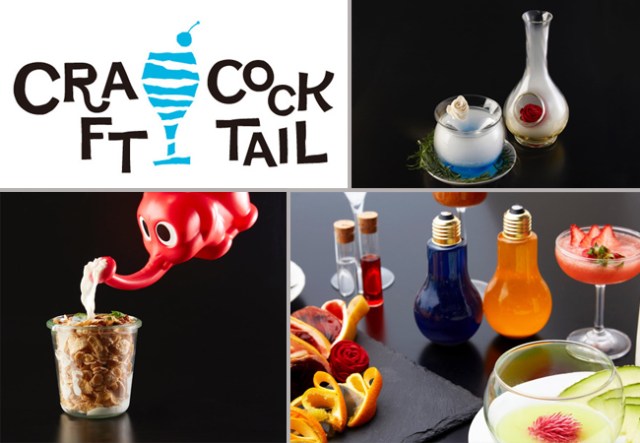
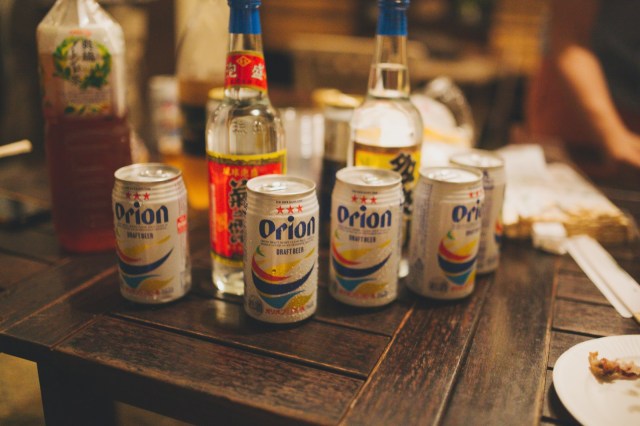
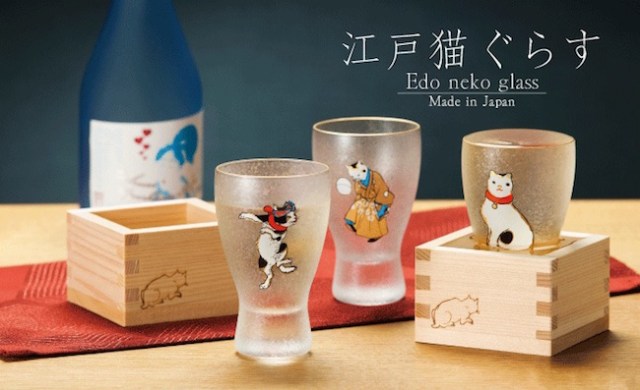
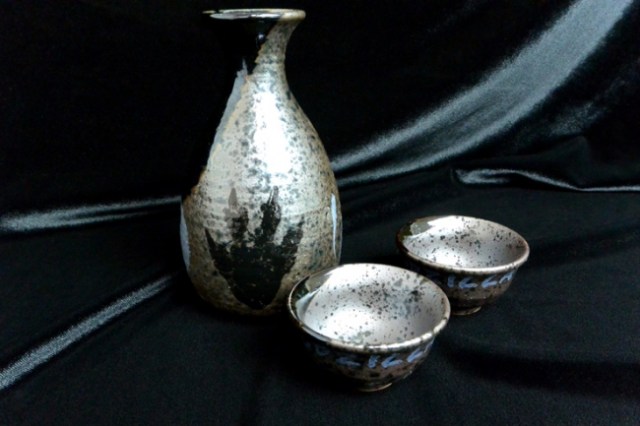
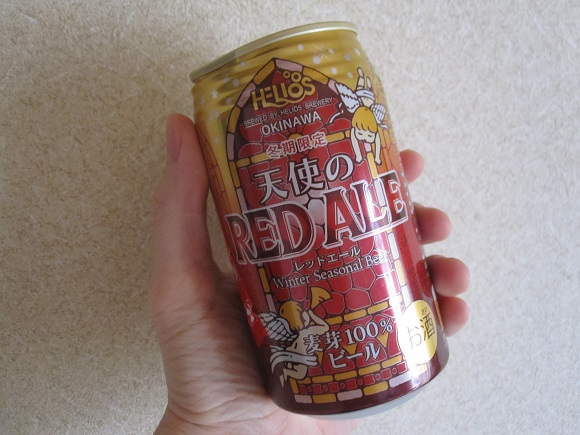
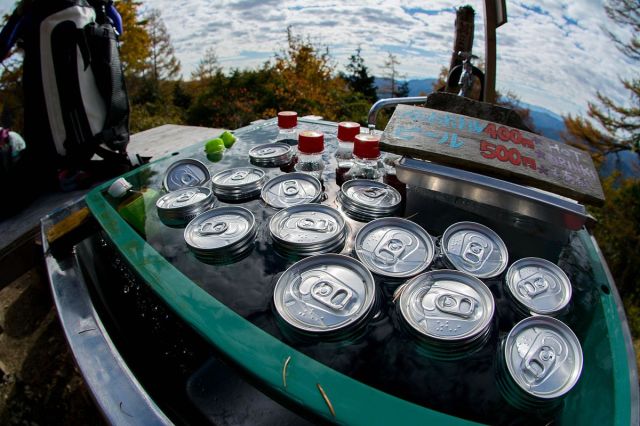
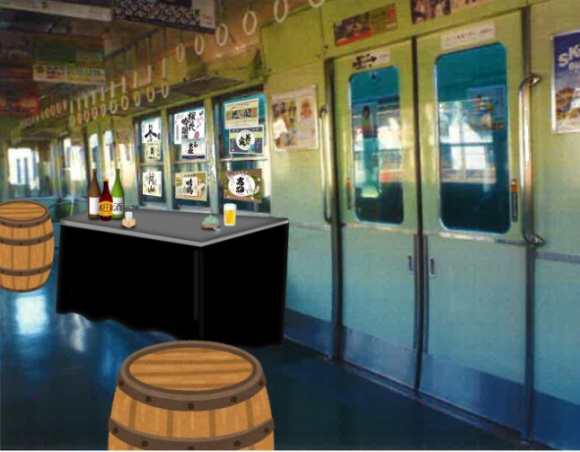
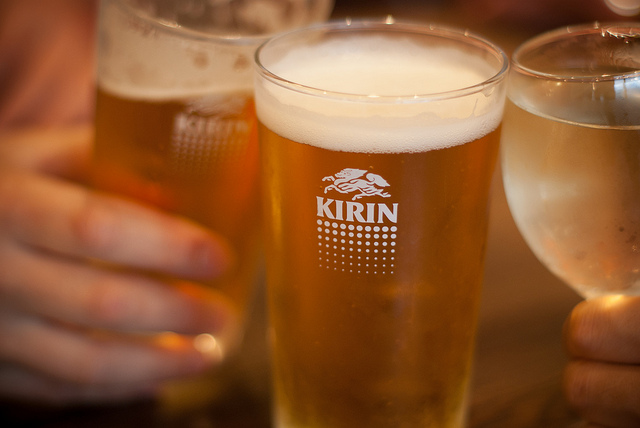
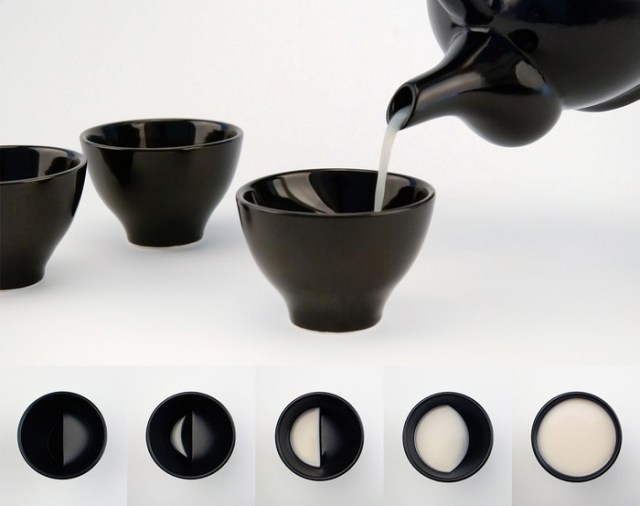
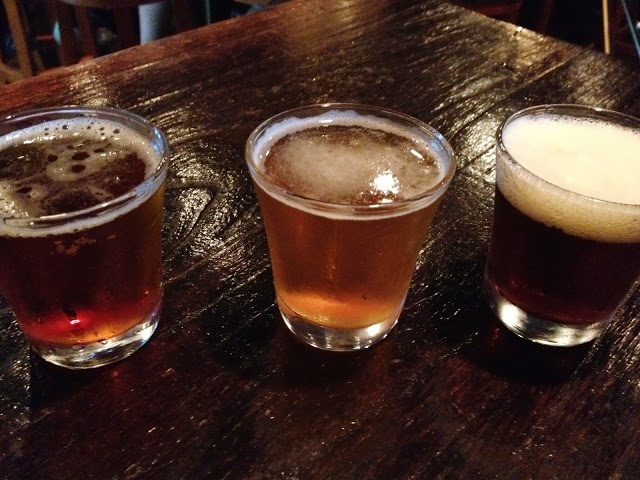

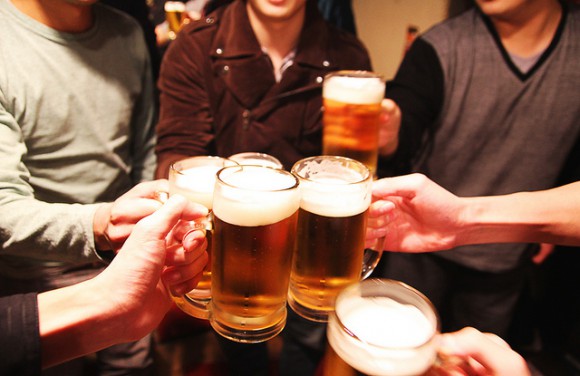
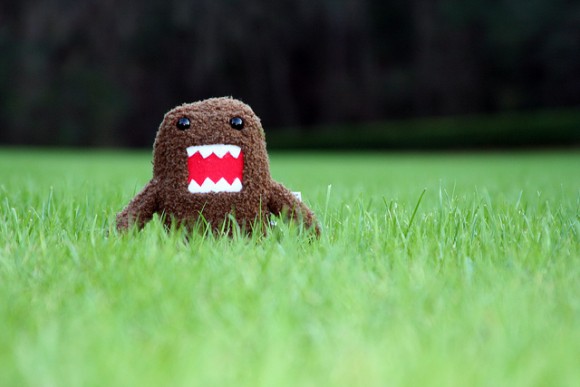
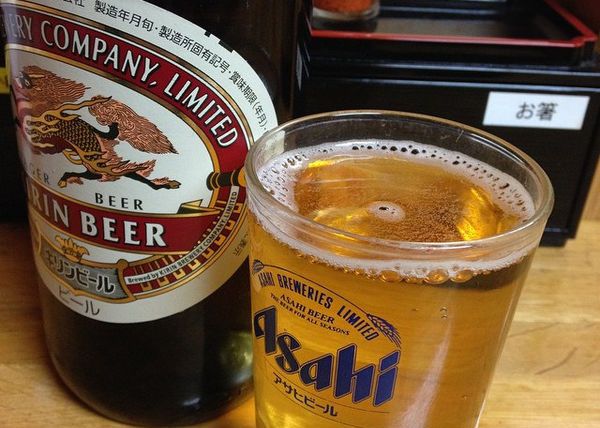
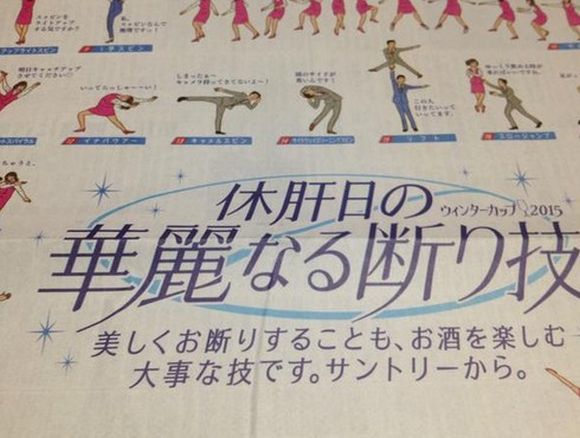
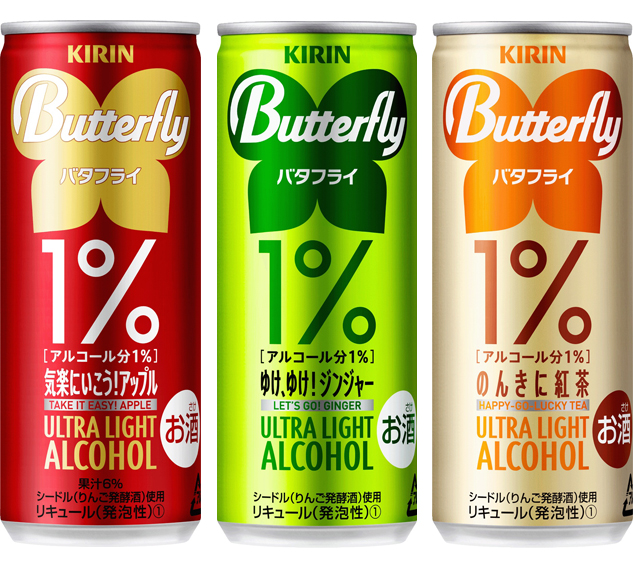
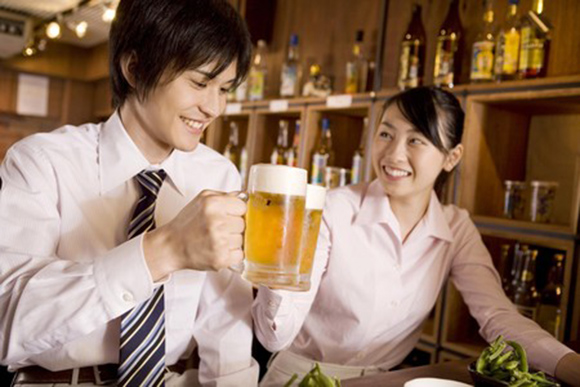
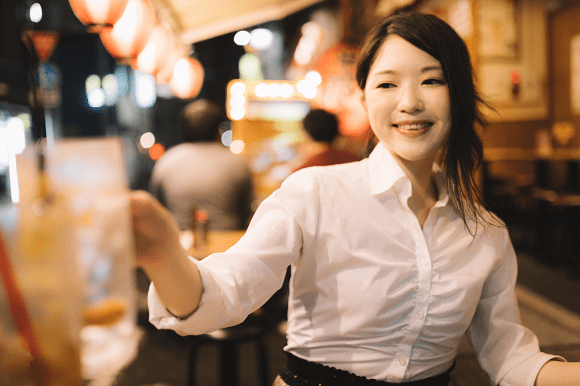
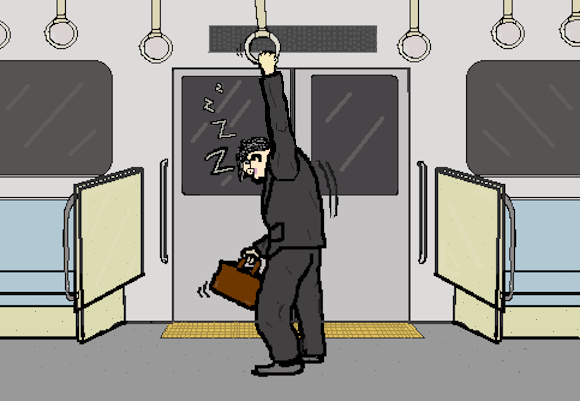
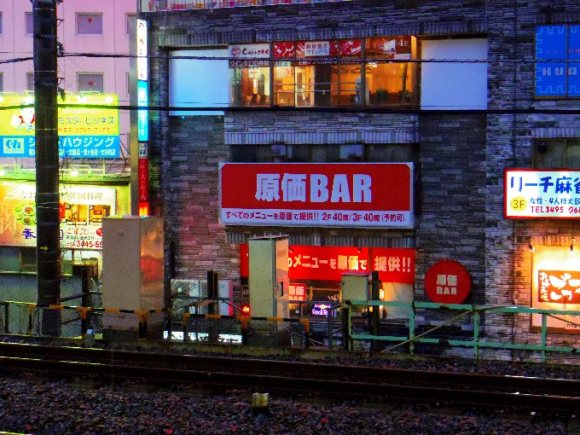
 Starbucks Japan releases first-ever Hinamatsuri Girls’ Day Frappuccino
Starbucks Japan releases first-ever Hinamatsuri Girls’ Day Frappuccino Japanese drugstore sells onigiri at pre-stupid era prices, but how do they compare to 7-Eleven?
Japanese drugstore sells onigiri at pre-stupid era prices, but how do they compare to 7-Eleven? Japan Extreme Budget Travel! A trip from Tokyo to Izumo for just 30,000 yen [Part 1]
Japan Extreme Budget Travel! A trip from Tokyo to Izumo for just 30,000 yen [Part 1] Japan has only one airport named after a samurai, so let’s check out Kochi Ryoma【Photos】
Japan has only one airport named after a samurai, so let’s check out Kochi Ryoma【Photos】 7 great places to see Mt. Fuji from without having to climb it
7 great places to see Mt. Fuji from without having to climb it Early-blooming sakura cherry blossoms create pink-tinged wonderlands in Japan
Early-blooming sakura cherry blossoms create pink-tinged wonderlands in Japan Kagoshima conveyor belt sushi chain Mekkemon rises above the rest with its special secret weapon
Kagoshima conveyor belt sushi chain Mekkemon rises above the rest with its special secret weapon The top 5 ice creams you should try at Family Mart convenience stores in Japan this summer
The top 5 ice creams you should try at Family Mart convenience stores in Japan this summer New Uniqlo x Pokémon collection coming to Japan this month!
New Uniqlo x Pokémon collection coming to Japan this month! 7-Eleven Japan’s sakura sweets season is underway right now!
7-Eleven Japan’s sakura sweets season is underway right now! The 10 most annoying things foreign tourists do on Japanese trains, according to locals
The 10 most annoying things foreign tourists do on Japanese trains, according to locals Highest Starbucks in Japan set to open this spring in the Tokyo sky
Highest Starbucks in Japan set to open this spring in the Tokyo sky Tokyo Skytree turns pink for the cherry blossom season
Tokyo Skytree turns pink for the cherry blossom season Starbucks Japan releases new sakura goods and drinkware for cherry blossom season 2026
Starbucks Japan releases new sakura goods and drinkware for cherry blossom season 2026 Japan’s new “Cunte” contact lenses aren’t pronounced like you’re probably thinking they are
Japan’s new “Cunte” contact lenses aren’t pronounced like you’re probably thinking they are Shibuya Station’s Hachiko Gate and Yamanote Line stairway locations change next month
Shibuya Station’s Hachiko Gate and Yamanote Line stairway locations change next month Yakuzen ramen restaurant in Tokyo is very different to a yakuza ramen restaurant
Yakuzen ramen restaurant in Tokyo is very different to a yakuza ramen restaurant Starbucks Japan adds new sakura Frappuccino and cherry blossom drinks to the menu
Starbucks Japan adds new sakura Frappuccino and cherry blossom drinks to the menu Japan just had its first same-month foreign tourist decrease in four years
Japan just had its first same-month foreign tourist decrease in four years Burning through cash just to throw things away tops list of headaches when moving house in Japan
Burning through cash just to throw things away tops list of headaches when moving house in Japan Japan’s newest Shinkansen has no seats…or passengers [Video]
Japan’s newest Shinkansen has no seats…or passengers [Video] Foreigners accounting for over 80 percent of off-course skiers needing rescue in Japan’s Hokkaido
Foreigners accounting for over 80 percent of off-course skiers needing rescue in Japan’s Hokkaido Super-salty pizza sends six kids to the hospital in Japan, linguistics blamed
Super-salty pizza sends six kids to the hospital in Japan, linguistics blamed Starbucks Japan unveils new sakura Frappuccino for cherry blossom season 2026
Starbucks Japan unveils new sakura Frappuccino for cherry blossom season 2026 Foreign tourists in Japan will get free Shinkansen tickets to promote regional tourism
Foreign tourists in Japan will get free Shinkansen tickets to promote regional tourism Take a trip to Japan’s Dododo Land, the most irritating place on Earth
Take a trip to Japan’s Dododo Land, the most irritating place on Earth Naruto and Converse team up for new line of shinobi sneakers[Photos]
Naruto and Converse team up for new line of shinobi sneakers[Photos] Is China’s don’t-go-to-Japan warning affecting the lines at a popular Tokyo gyukatsu restaurant?
Is China’s don’t-go-to-Japan warning affecting the lines at a popular Tokyo gyukatsu restaurant? Survey asks foreign tourists what bothered them in Japan, more than half gave same answer
Survey asks foreign tourists what bothered them in Japan, more than half gave same answer Japan’s human washing machines will go on sale to general public, demos to be held in Tokyo
Japan’s human washing machines will go on sale to general public, demos to be held in Tokyo Starbucks Japan releases new drinkware and goods for Valentine’s Day
Starbucks Japan releases new drinkware and goods for Valentine’s Day We deeply regret going into this tunnel on our walk in the mountains of Japan
We deeply regret going into this tunnel on our walk in the mountains of Japan Studio Ghibli releases Kodama forest spirits from Princess Mononoke to light up your home
Studio Ghibli releases Kodama forest spirits from Princess Mononoke to light up your home Major Japanese hotel chain says reservations via overseas booking sites may not be valid
Major Japanese hotel chain says reservations via overseas booking sites may not be valid Put sesame oil in your coffee? Japanese maker says it’s the best way to start your day【Taste test】
Put sesame oil in your coffee? Japanese maker says it’s the best way to start your day【Taste test】 No more using real katana for tourism activities, Japan’s National Police Agency says
No more using real katana for tourism activities, Japan’s National Police Agency says Early-blooming sakura cherry blossoms create pink-tinged wonderlands in Japan
Early-blooming sakura cherry blossoms create pink-tinged wonderlands in Japan Kagoshima conveyor belt sushi chain Mekkemon rises above the rest with its special secret weapon
Kagoshima conveyor belt sushi chain Mekkemon rises above the rest with its special secret weapon The top 5 ice creams you should try at Family Mart convenience stores in Japan this summer
The top 5 ice creams you should try at Family Mart convenience stores in Japan this summer New Uniqlo x Pokémon collection coming to Japan this month!
New Uniqlo x Pokémon collection coming to Japan this month! 7-Eleven Japan’s sakura sweets season is underway right now!
7-Eleven Japan’s sakura sweets season is underway right now! The 5 best Iwate foods and drinks to buy at the prefecture’s antenna shop in Tokyo
The 5 best Iwate foods and drinks to buy at the prefecture’s antenna shop in Tokyo Hey, 2020s kids! The ’90s have a sticker picture message waiting for you in Tokyo
Hey, 2020s kids! The ’90s have a sticker picture message waiting for you in Tokyo “Denki Anma”: The Japanese traditional torment that you’ll be glad stays in Japan
“Denki Anma”: The Japanese traditional torment that you’ll be glad stays in Japan Deep Sea Pudding made in Japanese port town is an edible work of art!
Deep Sea Pudding made in Japanese port town is an edible work of art! Shikadamari: The Nara deer summer gathering phenomenon that baffles visitors every year
Shikadamari: The Nara deer summer gathering phenomenon that baffles visitors every year Survey finds that one in five high schoolers don’t know who music legend Masaharu Fukuyama is
Survey finds that one in five high schoolers don’t know who music legend Masaharu Fukuyama is Japanese women’s breasts continue to grow, reach historic tipping point in lingerie maker’s study
Japanese women’s breasts continue to grow, reach historic tipping point in lingerie maker’s study How to get to east Japan’s best highway rest stop for foodies without a car of your own
How to get to east Japan’s best highway rest stop for foodies without a car of your own